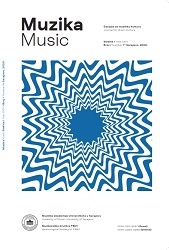
In memoriam Dr. Bruno Nettl
In memoriam Dr. Bruno Nettl (Prag, 14. mart 1930–Urbana (Illinois), 15. januar 2020)
More...We kindly inform you that, as long as the subject affiliation of our 300.000+ articles is in progress, you might get unsufficient or no results on your third level or second level search. In this case, please broaden your search criteria.

In memoriam Dr. Bruno Nettl (Prag, 14. mart 1930–Urbana (Illinois), 15. januar 2020)
More...
In memoriam Dr. Rudolf Pietsch (Beč, 17. oktobar 1951–Krems, 5. februar 2020)
More...
In memoriam Dr. Gorana Doliner-Čaldarović (Sarajevo, 7. august 1945–Zagreb, 8. mart 2020)
More...
In memoriam Dr. Zija Kučukalić (Sarajevo, 25. februar 1929–Amsterdam, 18. mart 2020)
More...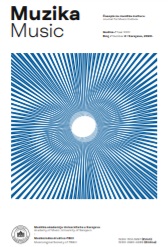
Prije nekoliko dana dobili smo vijest da je Josip Magdić preminuo u svom rodnom Ogulinu. Tako uvijek kada dobijemo vijest o smrti prijatelja, poznanika, kolege, dragog čovjeka, barem nakratko se zamislimo i zaključimo da priroda ili Bog nisu dovoljno dobro udesili rastanke živih s mrtvima, a onda i ostanak mrtvih u sjećanju živih. No, imamo ipak utjehu da neki mrtvi, poput Josipa Magdića, ostaju u svojim djelima, kompozicijama, knjigama, dobrim djelima uostalom.
More...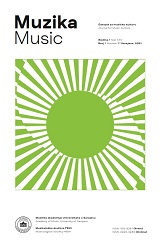
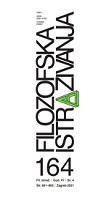
Hans Küng, švicarski teolog s dugogodišnjom njemačkom adresom, umro je 6. travnja 2021. godine. Küng je bio jedan od peritusa na Drugom vatikanskom koncilu, s J. B. Metzom, K. Rahnerom i drugima, supokretač teološkog časopisa Concilium, profesor teologije u njemačkom Tübingenu, nakon oduzimanja prava na poučavanje katoličke teologije, ravnatelj Ekumenskog instituta u Tübingenu, te izrazito plodan pisac s bogatom misaonom ostavštinom. Hans Küng kod mnogih budi drugačije asocijacije, a mimo onih koji te asocijacije zadržavaju na pamfletističkom i senzacionalističkom »čitanju« Künga, kakav je u hrvatskoj javnosti uvelike uvriježen i koji Künga promatra isključivo kroz prizmu enfant terriblea te sukoba s Vatikanom od početka 1970-ih godina pa nadalje, ovdje ćemo spomenuti samo one koji su se ozbiljno uhvatili u koštac s njegovom teologijom.
More...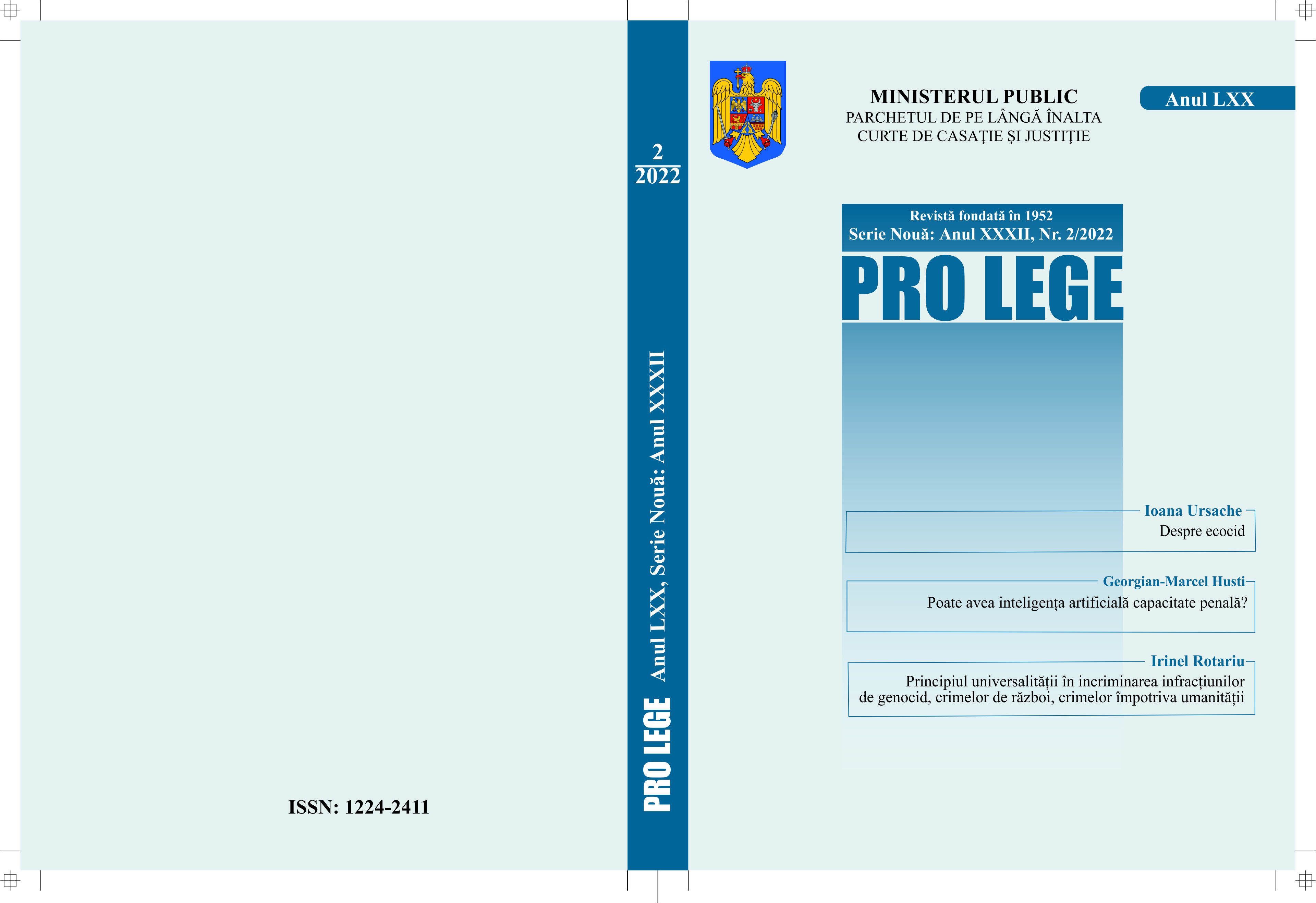
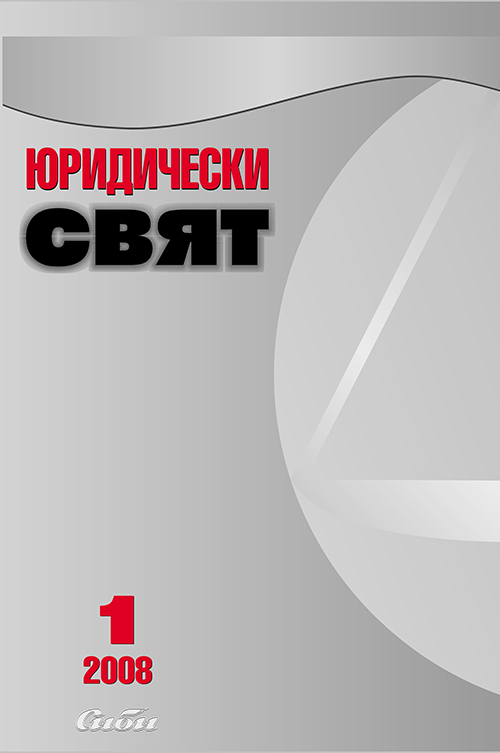
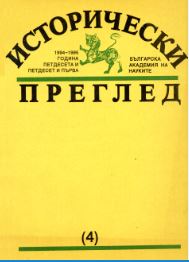
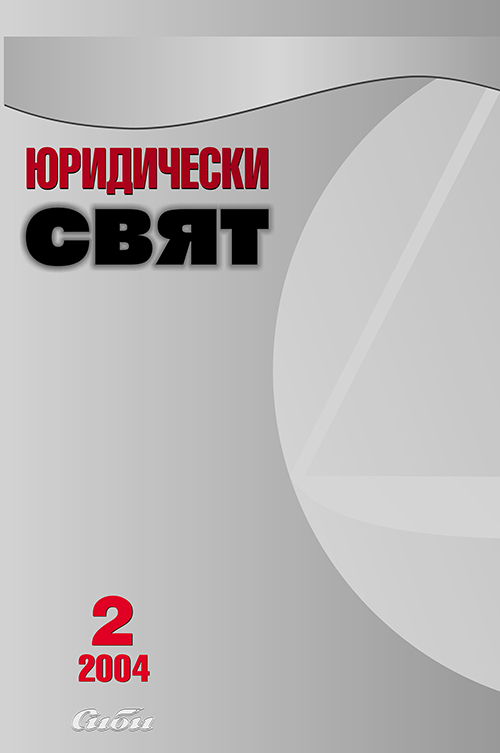
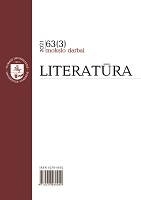
The present article gives a survey of R. Mironas academic career based upon archive material kept in the Vilnius university library and in the Martynas Mažvydas National Library. R. Mironas’ egodocuments are published for the first time. They help to understand the contemporary situation in the institutions of high education and the constant ideological constraint felt by the academic staff. R. Mironas is the only one among the Lithuanian classicists whose name is rarely spoken, according to the dictum nil, nisi bene. It is not much written about him untill the present day, in spite of the fact that Mironas was one of of the most gifted and colourful personalities. He is regarded as one of the beginners of the Oriental studies in Lithuania. R. Mironas was born to an outstanding family; none of his colleagues could make a similar boast. After the Russian occupation he did not leave Lithuania like most of the Lithuanian intellectuals and in 1944 started teaching at Kaunas university. He made his choice to become a social climber from the very beginning of the occupation. He made a spectacular academic caree due to his ability to adapt to the ideological requirements and to easily change his creed on demand.The present article gives a survey of R. Mironas academic career based upon archive material kept in the Vilnius university library and in the Martynas Mažvydas National Library. R. Mironas’ egodocuments are published for the first time. They help to understand the contemporary situation in the institutions of high education and the constant ideological constraint felt by the academic staff.The present article gives a survey of R. Mironas academic career based upon archive material kept in the Vilnius university library and in the Martynas Mažvydas National Library. R. Mironas’ egodocuments are published for the first time. They help to understand the contemporary situation in the institutions of high education and the constant ideological constraint felt by the academic staff. R. Mironas is the only one among the Lithuanian classicists whose name is rarely spoken, according to the dictum nil, nisi bene. It is not much written about him untill the present day, in spite of the fact that Mironas was one of of the most gifted and colourful personalities. He is regarded as one of the beginners of the Oriental studies in Lithuania. R. Mironas was born to an outstanding family; none of his colleagues could make a similar boast. After the Russian occupation he did not leave Lithuania like most of the Lithuanian intellectuals and in 1944 started teaching at Kaunas university. He made his choice to become a social climber from the very beginning of the occupation. He made a spectacular academic caree due to his ability to adapt to the ideological requirements and to easily change his creed on demand.The present article gives a survey of R. Mironas academic career based upon archive material kept in the Vilnius university library and in the Martynas Mažvydas National Library. R. Mironas’ egodocuments are published for the first time. They help to understand the contemporary situation in the institutions of high education and the constant ideological constraint felt by the academic staff. R. Mironas is the only one among the Lithuanian classicists whose name is rarely spoken, according to the dictum nil, nisi bene. It is not much written about him untill the present day, in spite of the fact that Mironas was one of of the most gifted and colourful personalities. He is regarded as one of the beginners of the Oriental studies in Lithuania. R. Mironas was born to an outstanding family; none of his colleagues could make a similar boast. After the Russian occupation he did not leave Lithuania like most of the Lithuanian intellectuals and in 1944 started teaching at Kaunas university. He made his choice to become a social climber from the very beginning of the occupation. He made a spectacular academic caree due to his ability to adapt to the ideological requirements and to easily change his creed on demand.
More...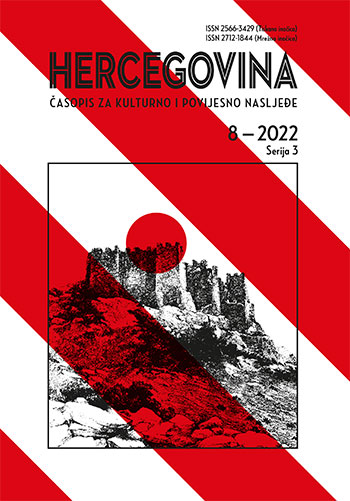

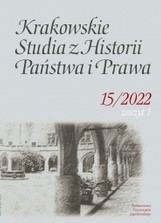
In memoriam: Profesorowi Michałowi Pietrzakowi (1929–2021)
More...
In memoriam: Profesor Henryk Olszewski (1932–2021)
More...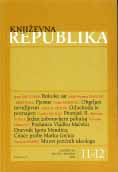
Junaci Rackovićeve proze neprestano maštaju o zbilji kao mjestu ostvarenja neke često jednostavne ljudske punine i smisla, uvijek planiraju nešto graditi, praviti, poboljšati, pomoći. No, stvarnost sama, kako pokazuje pisac, neprestano se vraća samoj sebi kao istom vidu puke obrane vegetiranja i svojevrsne ’samovolje ruralnog’. Ne bez razloga u jednom razgovoru s novinarima Racković spominje kako je gotovo opsjednut svakodnevicom, a uz to za junake romana »Kokošje slepilo«, »Prsten od lažnog zlata« i »Barske ptice« tvrdi kako je neumoljiva svakodnevnica ’ogroman, opasan i težak brisani prostor koji treba savladati, za sebe osvojiti’.
More...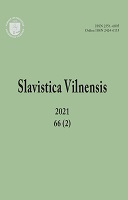
Lars Erik Blomqvist was an outstanding Swedish Slavist and celebrated translator of Russian literature. He was awarded numerous prizes for his work as a translator, honored as the best lecturer at Uppsala University, bestowed the degree of doctor honoris causa by Stockholm University, and was one of the founders of the celebrated seminar at Södertörn University focused on the translation of prose and poetry. He translated the works of Bulgakov, Erenburg, Leonov, Aitmatov, Pristavkin, Pjecuch, Pilnyak, Grossman, Bitov, and many others, including the works of Russian classics — Radischev, Tolstoy, Dostoevsky, Sologub. One of the highlights of his translations is the anthology of Russian poetry Från Derzjavin till Brodsky (1989), which was a joint project with Hans Björkegren. Lars Erik visited Vilnius University numerous times, where he gave lectures and master classes on the translation of fiction.
More...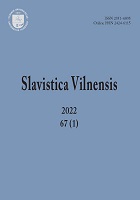
2022 02 07 one of the most famous linguists in the world, founder of Polish cognitive ethnolinguistics, Slavist, semanticist, axiologist and textologist Jerzy Bartmińskis, author of 12 books and more than 900 articles, editor-in-chief of the journal "Etnolingwistyka", author of the dictionary Słownik stereotypów i symboli ludowych, editor of the axiological dictionary Leksykon aksjologiczny Słowian i ich sąsiadów. He actively collaborated with Lithuanian scientists who use the methods proposed by him to study the linguistic picture of the world.
More...
On March 6, 2022, Olga Rovnova, a linguist and dialectologist, died after a serious illness. She studied the Old Believers for many years, was a specialist in Russian aspectology, as well as the Old Believers of Estonia and Latin America. She initiated interdisciplinary studies of the language and culture of the Old Believers' chapels of South America, immigrants from China. In 2006–2008 Rovnova organized reconnaissance dialectological expeditions to Old Believer settlements in Argentina, Uruguay, Bolivia, and Brazil; in 2009, she visited the Old Believers of Australia (Sydney, Brisbane). The results of the researcher's many years of field work are her numerous articles published in various scientific journals in Russia and abroad (a total of more than 140 scientific papers), scientific reports at Russian and international conferences, popular science educational speeches and lectures.
More...